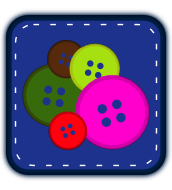Programming like Chrono Trigger
The sheer magnitude of differences per language (programming languages) hasn’t really come into focus. I’m still working on understanding script vs. compiler and interpreter, and the wheres and whens of those. I had done a fair amount of excel work previous to this, so the problems he uses for examples make sense.
An example from the readings:
| question = "What did you have for lunch?" print (question) answer = raw_input() print ("You had " + answer + "! That sounds delicious!") |
This little ditty was giving me FF3 and Chrono trigger flashbacks. For you this may mean flashbacks from 20 years ago or before. For myself it means flashbacks from less than two years ago. It was required of me from my current boyfriend, that I play some of the very old school games. I’m glad I did. This piece of code started my brains churning. It made me think of the slight additions you could make to this code, where certain strings created answers that didn’t end with ‘That sounds delicious!’ to ‘That sounds atrocious!’. It made me think of all the mudding I had seen previous friends doing when I was younger. Connecting this simple piece to games I had played helped to bring into stark realization what I could do with simple programming skills. It’s honestly quite exciting. I wish that more people I knew felt this way.

 2012 FlamingLunchbox unless otherwise noted.
2012 FlamingLunchbox unless otherwise noted.